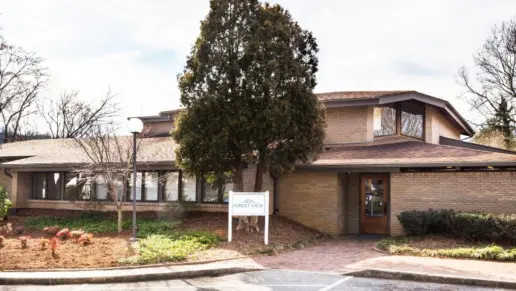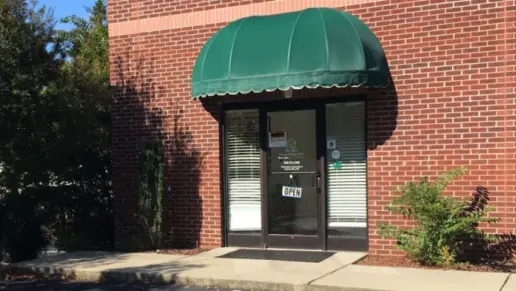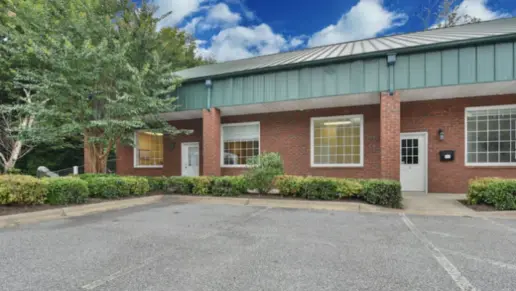About Caldwell House
Caldwell House is a men’s sober living facility in Lenoir, North Carolina. They provide a safe, clean and substance free environment where you can access resources and fellowship for lasting recovery. They serve adults in the early stage of recovery or transitioning from an inpatient rehab. You can also benefit from this facility if you simply need extra stability and structure to maintain sobriety.
The facility fosters a sense of belonging, responsibility and accountability. These qualities can strengthen your commitment to sobriety. Each resident enjoys a private room that is thoughtfully laid out in a home like setting with a private bathroom and shower. The Cafe Room is a cozy space built for relaxation and socializing. Residents gather here to eat or watch TV.
Wholesome food is provided thrice daily. You’ll also benefit from therapeutic programs as you learn to reenter society in structured and healthy environments. The program involves assessment, individualized treatment and aftercare planning. Individual and group counseling is also an integral component of the program.
Average stay ranges between nine and 18 months. It all depends on your unique condition. However, you must maintain at least four months’ commitment and be actively involved in implementing aftercare plans. Participation in their 12 Step meeting is also mandatory. That’s part of the house rules.
In addition to providing a conducive sober living environment, Caldwell House provides various beneficial community services. They serve as a 24 hour information hotline for families with addiction issues.
Their staff can also assist and guide you if you need detox, additional treatment or 12 Step meetings. They offer gainful employment assistance, educational support and help you build essential life skills for independent living.
Past clients’ comments indicate an overwhelmingly positive experience. Most cited efficient staff and the serene environment as contributing to overall quality of care.
Latest Reviews
Location
Location
Accepted Insurance
Other Forms of Payment
Self-pay involves paying for treatment out of your own pocket. You can use savings or credit, get a personal loan, or receive help from family and friends to fund your treatment. If you don't have insurance or your insurance plan doesn't cover a specific program, self-pay can help ensure you still get the care you need.
Addiction Treatments
Levels of Care
Treatments
The goal of treatment for alcoholism is abstinence. Those with poor social support, poor motivation, or psychiatric disorders tend to relapse within a few years of treatment. For these people, success is measured by longer periods of abstinence, reduced use of alcohol, better health, and improved social functioning. Recovery and Maintenance are usually based on 12 step programs and AA meetings.
There are many types of drug rehab in North Carolina. To receive treatment for addiction, you can choose from many inpatient and outpatient programs. Often, participants start with detox and work through a full continuum of care that continues with ongoing support for long-term recovery.
Substance rehabs focus on helping individuals recover from substance abuse, including alcohol and drug addiction (both illegal and prescription drugs). They often include the opportunity to engage in both individual as well as group therapy.
Programs


Clinical Services
Group therapy is any therapeutic work that happens in a group (not one-on-one). There are a number of different group therapy modalities, including support groups, experiential therapy, psycho-education, and more. Group therapy involves treatment as well as processing interaction between group members.
In individual therapy, a patient meets one-on-one with a trained psychologist or counselor. Therapy is a pivotal part of effective substance abuse treatment, as it often covers root causes of addiction, including challenges faced by the patient in their social, family, and work/school life.
Life skills trainings involve all the skills a person must have in order to function successfully in the world. These include time management, career guidance, money management, and effective communication. Truly successful addiction recovery is based on the ability to not only live substance-free, but to thrive. Life skills teaches the practical necessities of functioning in society, which sets clients up for success in life, and therefore sobriety.
Amenities
-
Wilderness Setting
-
Residential Setting
-
Private Setting
-
Recreation Room
-
Hiking
-
Gym
Contact Information
951 Kenham Place Southwest
Lenoir, NC 28645



